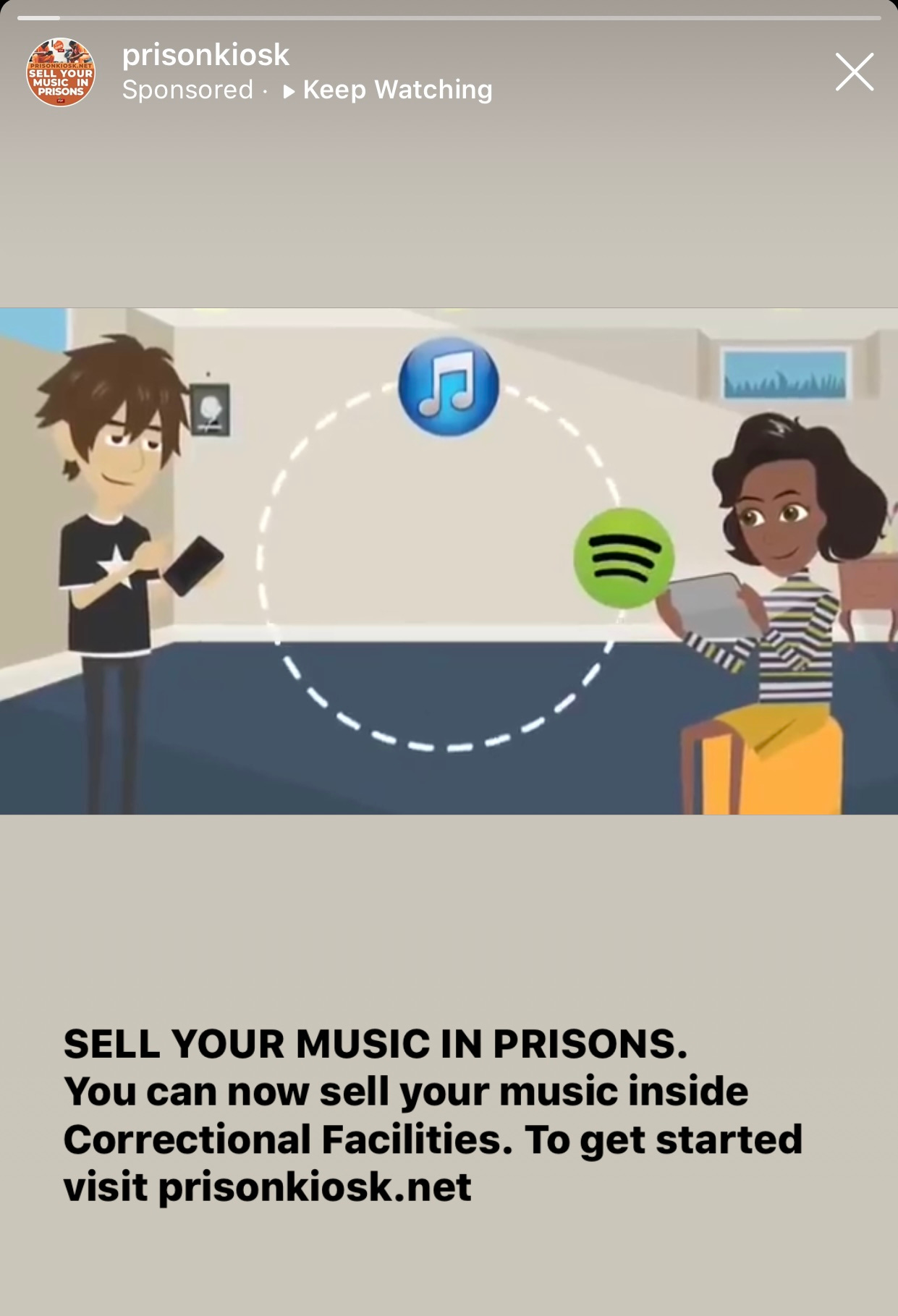For those of you who follow me on instagram (which is all of you, yes?), you’re likely aware of a little story series called #MySponsoredAds. It’s exactly what it sounds like, a showcase of some of the bizarre, inane, and totally fucking bonkers sponcon that has been served to me through social media over the years.
On occasion, I’ll claim that the algorithm knows me better than I know myself. Most recently, I professed that sentiment over a screenshot of an ad for a thin retro-futuristic looking device that declared: “NOW YOU CAN PLAY MUSIC ON SKIN.”


Ironically, the video had no sound, and I’d be lying if I said that I wasn’t intrigued—ya girl loves a skin flute, after all. I dutifully clicked through to the main account and was assaulted by a sound that can only be described as a near-dead fish full of nails flopping around on a synth pad. It was giving use it once and then stick it in a drawer until you toss it out the next time you move. All for the low, low price of $81.99 (down from $116.99—you can’t afford to not buy it).
The variety of products and scams being hawked to us are never-ending. For every “real” person you see in your feed, there’s a binary counterpart goading you with 0s and 1s, begging you to swipe up for more info on how to have your face preserved in plaster (my holiday gift to everyone).



Or, more nefariously, how to sell your music in prisons for profit.
The juxtaposition from fun to weird to wtf can be jarring, and as we become more and more desensitized to the unmitigated flow of extremes, it’s no wonder that the wiring in our brains has short-circuited in sparks of 🔥❤️😮😢.
Like most things in life, too much of a good thing can go from nice to bad to completely detrimental. And like most things in life, at the helm of the sinking ship are white male megalomaniacs, steering us toward the iceberg that they themselves built. And sure, maybe the ice splits in two, parting like the legs of your crazy ex-girlfriend (hi, Olivia), revealing a James Bond-esque villain’s lair. Those who can afford to ride in the front of the ship may survive, but the rest of us are left to duke it out for a spot in one of the few lifeboats available—deflated by holes of misogyny, homophobia, classism, and racism. But, come on, we’re talking about silly sponsored ads, how does the above really apply?
For one, Instagram and other social media platforms are notoriously tight-lipped about their approval process for ads. Creators, inventors, artisans, and shop owners—the fine people who are funneling money to Daddy Zuck by way of digital marketing—receive a small set of data in return for handing over all of theirs.
Major corporations who run ads have such a large budget that they don’t need to care about the lack of actionable information they receive, but what about the person who spends their life savings to create the world’s first anti-gravity knee brace? That data could be vital to keeping their company alive.
Upon investigation, the brace works by using a spring-loaded hinge design and honestly looks pretty effective. Digging a little deeper, it was made clear that this brand’s product was absolutely not the world’s first and (allegedly) doesn’t use approved patented technology—but who’s fact checking that? And who cares? We should, at least a little.
Likely, when you look at your ads, regardless of your ethnicity, the majority will feature the flour contingent (YT people). When POC are present, it often feels like they’re there to meet a quota. And sometimes it’s even worse.


Digital discrimination (or techno-racism, as it has been coined) is a very real thing that goes well beyond the examples I gave above. It affects the entire infrastructure of the internet and ensures that POC are still represented as less than.
POC-owned brands/sites have lower-ranking search results, facial recognition technology is built on the basis of skin color, credit scoring algorithms disproportionately identify Black people as risks, the list goes on and on and racism prevails. (More examples can be found here.)
Another worrying sellable commodity that has become extremely prevalent is mental health. The ads promise a cure for depression by playing video games, a variety of snake-oil “solutions”, and free ketamine. A friend tried the latter and said it was indeed free, and indeed some kind of tranquilizer, though he wasn’t sure if it was the one being advertised. Perhaps that’s because that ad was sponsored by a clinic that was founded after they saw a sponsored ad.



Targeting and taking advantage of people who are struggling and at their lowest, through an app that has been scientifically proven to be destructive, is really fucking icky. What’s worse is that a lot of the ads are designed with the sole purpose of collecting your information to sell to marketing agencies and the “dark web”.
It’s confounding to me that these predatory ads are allowed, but my cannabis/sex worker/educator friends are removed from the platform or shadowbanned, just for existing in our puritanical society—even if their content contains no nudity or solicitation. (For more information on digital safety within the context of SW, sub to my friend Mistress Fae’s ‘stack.)
Despite everything I’ve written about thus far, for every ridiculous ad that I see there are 5x more that do get me. And all it costs is my privacy, security, data, freedom of speech, practicality, mental well-being, social security number, blood type, and general lack of shame.



So, what do your sponsored ads say about you?





